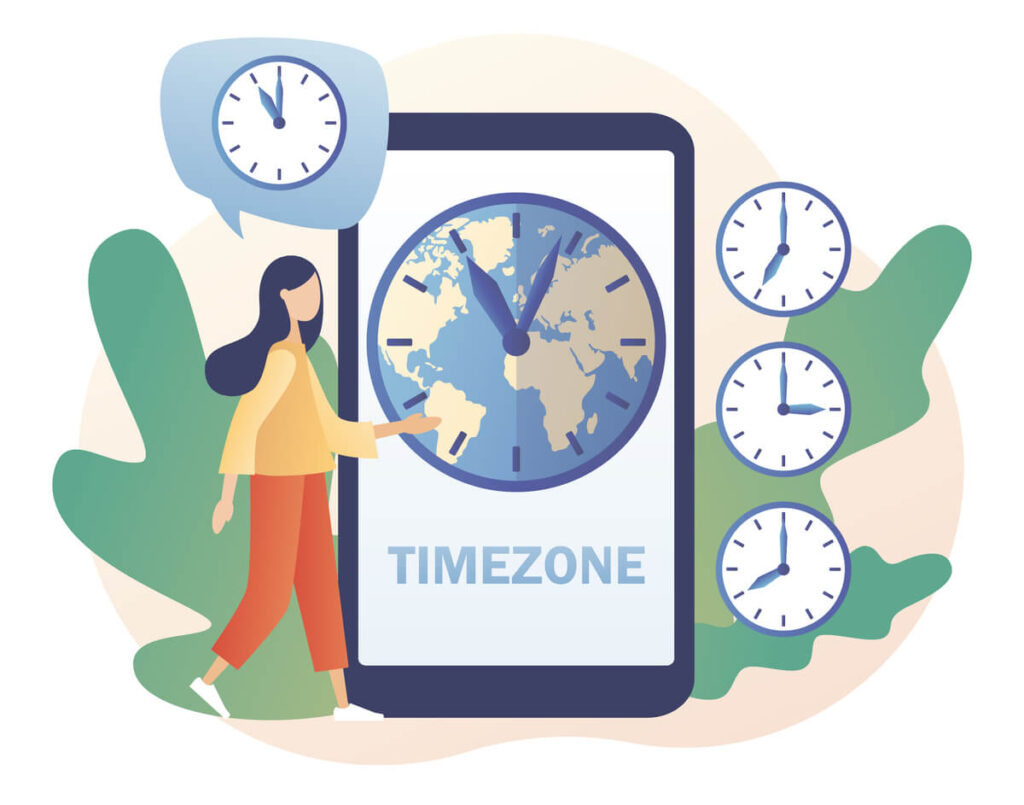October 27, 2022
Good morning. Today’s either/view is going to be shorter with just the feature story. We discuss whether India should have two separate time zones.
📰 FEATURE STORY
Should India Have Two Time Zones?

Over the past few years, many politicians and citizens have debated whether India should have two different time zones. We are the second-largest country after China which runs in a single time zone. This has posed certain challenges based on the difference in daylight times between the longitudinal extremes of the country.
While there is some merit in considering this change, what are the obstacles that come with it?
Context
From a geographical perspective, India is placed between the latitudes 68°7’E in Gujarat and 97°25’E in Arunachal, exhibiting a 29° spread which represents nearly a two-hour difference in mean solar time from one side of the country to the other. The country stretches 3,000 km from east to west and as a result, the sun rises two hours early in the Northeast states. Due to this significant difference, there is a loss of daylight hours affecting the productivity of these regions.
The Indian Standard Time (IST) is a legacy of British rule in India, thought to be a symbol of unity. Notably, India did not have a single time zone until as late as 1906. Historically, the cities of Bombay (now Mumbai), Calcutta (now Kolkata), and Madras (now Chennai), also known as the three Presidencies by the British, had their own time zones determined by their geographical location. Currently, the only provision for a separate time zone exists in the tea estates of Assam where the concept of ‘bagaan time’ (estate time) is implemented. This is one hour ahead of IST.
Theoretically, the time zone adopted by each region should correspond to its longitudinal distance from any other place. In reality, however, time zones are established on the basis of political boundaries and are demarcated by bent lines rather than straight longitudinal lines. This is labelled as “legal time” and is defined by a country’s law.
The geographic zero longitude runs through Greenwich, London identified as Greenwich Mean Time (GMT) on the basis of which other time zones are calculated. IST, which is five and a half hours ahead of GMT is maintained by India’s national timekeeper, the Council of Scientific & Industrial Research’s National Physical Laboratory (CSIR-NPL).
VIEW: India needs two time zones
The CSIR-NPL published a research article in 2019 describing the necessity of adopting two time zones in India, with the new time zone one and a half hours ahead of the existing one. Published in Current Science, the article enumerates new arguments stating the potential savings in energy consumption, roughly 20 million kWh a year if the two time zones are implemented. Since the sun rises and sets in eastern India much earlier than in the west, people in these regions start using lights earlier in the day hence using more electricity.
Another factor to consider is the impact of environmental cues like sunlight and temperature on the internal body clock. This influences energy levels to a great extent and signals to our body when to sleep, eat and wake up. Implementing different time zones will allow people belonging to the Northeast region to be more efficient and productive as the time will align with sunrise and sunset. Additionally, biomedical research has pointed out that by doing this, the circadian rhythm alignment leads to many physical and psychological benefits.
Not only will implementing two time zones improve the health and well-being of citizens, specifically located in the northeastern regions, it will also lead to a reduction in the carbon footprint of the country. Quality of life will improve by virtue of better sleep patterns and this will contribute to greater socioeconomic development for Northeastern states.
COUNTERVIEW: India does not need two time zones
In response to a parliamentary question regarding dual time zones, the then-Minister of Science & Technology, Health and Family Welfare and Earth Sciences Dr Harsh Vardhan stated that it is not possible in India due to strategic reasons. The High-Level Committee formed in 2020 examined the research article published by CSIR-NPL and concluded that dividing IST into IST-I and IST-II as the report suggested would not be feasible.
One of the bigger concerns regarding this move is the chaos it would cause for railway transport. Many long-distance routes have single tracks and having two time zones would lead to accidents if the timings aren’t carefully planned. Additionally, the energy savings argued above need to be looked into more closely as the office and school hours would remain the same irrespective of when they start.
Banks, industries, offices, and multinational companies need to be interconnected at all times and the time difference could result in deteriorating productivity and impact the economy of the eastern region. Apart from this, since the government is dedicated to improving infrastructure in the Northeastern states, socioeconomic development will happen whether or not two time zones are implemented.
Reference Links:
- Should India have two time zones? – The Free Press Journal
- Should India have two time zones? National timekeeper adds new arguments – The Indian Express
- Should India have more than one time zone? What are the advantages of using Daylight Saving Time? – Sriram’s IAS
- Strategic reasons do not allow dual time zones in India – The Hindu Business Line
- How India’s single time zone is hurting its people – BBC
What is your opinion on this?
(Only subscribers can participate in polls)
a) India needs two time zones.
b) India does not need two time zones.

